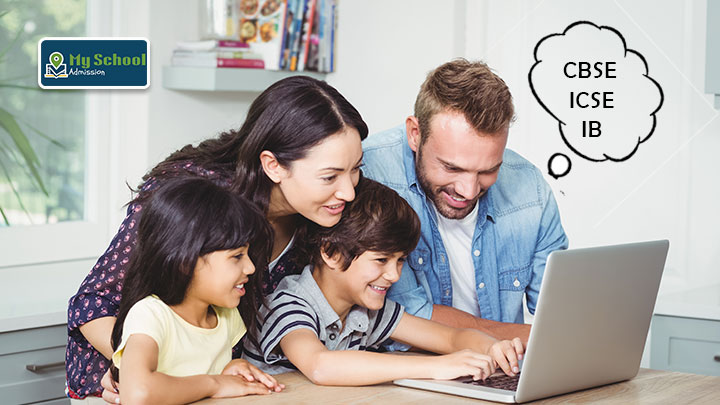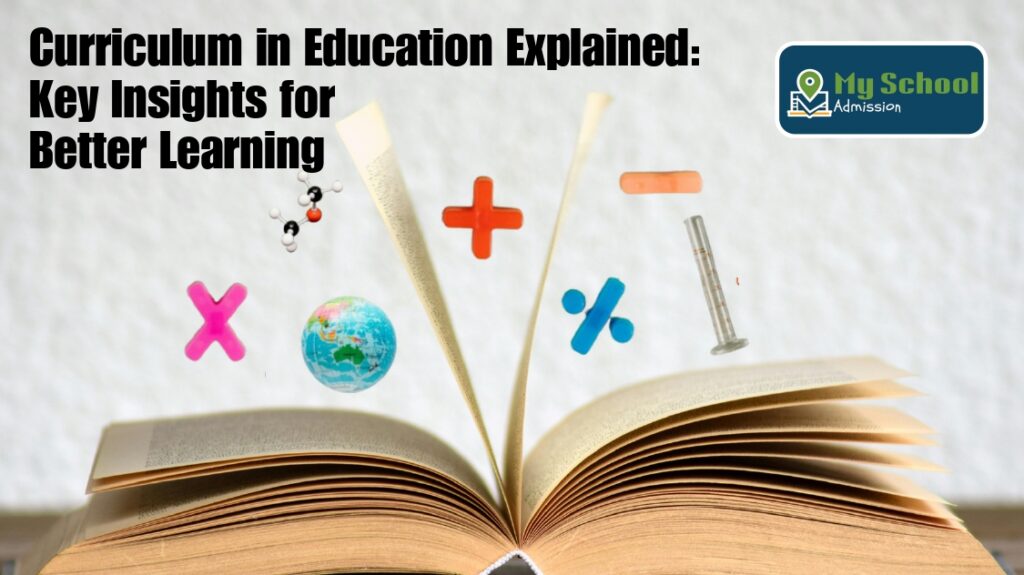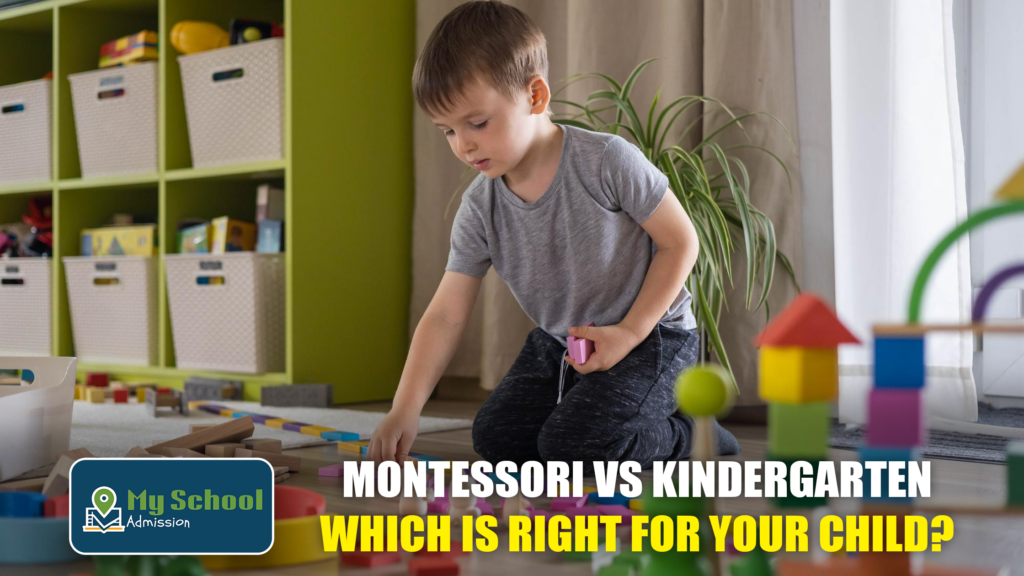Choosing the correct educational board for your child is one of the most important decisions you will make as a parent. In a country like India, there are a multitude of options available, all of which have their own philosophies and approaches to education. It is important to understand the differences to help your child achieve a level of comfort and success from their schooling experience.
This guide is designed to ease the choice in choosing which school board is best in India for the future of your child.
Understanding the Landscape: CBSE, ICSE and IB
When parents think about schooling in India, they often find themselves debating the merits and drawbacks of the Central Board of Secondary education (CBSE), the Council for the Indian School Certificate Examinations (CISCE), which governs the ICSE (Indian Certificate of Secondary Education) and ISC exams, or the International Baccalaureate (IB) programs, all of which are oriented to distinct styles of learning and future aspirations. Indeed, many parents are unsure about whether IB vs CBSE vs ICSE – which curriculum is more rigorous, flexible, or better suited for their child’s future. Understanding the differences in IB vs CBSE vs ICSE helps parents align their choice with their child’s learning style and long-term academic aspirations.
CBSE (Central Board of Secondary Education)
The CBSE board is the most popular and widely recognized board in India. It’s known for its uniform curriculum and is often favored by parents whose jobs involve frequent transfers within the country
- Curriculum Focus: CBSE curriculum is designed to be concise and focused, particularly strong in Science and Mathematics.
- Teaching Methodology: Emphasizes understanding fundamental concepts and encourages application-based learning.
- Competitive Exam Alignment: It’s largely aligned with the syllabus of major competitive entrance exams in India, such as JEE (Joint Entrance Examination) for engineering and NEET (National Eligibility cum Entrance Test) for medical.
- Accessibility: Has the largest number of affiliated schools across India, making it easier for students to transfer between schools.
- Assessment: Generally, focuses on standardized testing and exam-based assessments.
ICSE (Indian Certificate of Secondary Education)
The ICSE board, governed by the CISCE, is renowned for its comprehensive and detailed syllabus. It’s often perceived as more rigorous than CBSE, especially in its emphasis on language and arts.
- Curriculum Focus: Offers a broad and in-depth curriculum, giving equal importance to all subjects, including languages, arts, sciences and humanities.
- Holistic Development: Encourages critical thinking, analytical skills, and a well-rounded education through project work and internal assessments
- Language Proficiency: Known for its strong emphasis on English language and literature, fostering excellent communication and writing skills.
- Subject Choices: Provides a wider array of subjects and electives, allowing students to explore diverse interests.
- Assessment: Evaluation criteria are often more stringent, focusing on detailed answers, language proficiency, and presentation skills.
IB (International Baccalaureate)
The IB program, a globally recognized curriculum, offers inquiry- based approach to learning. designed to develop internationally-minded individuals.
- Curriculum Focus: Encourages interdisciplinary learning, critical thinking, research skills and community service. It’s not just about what students learn, but how they learn.
- Global Recognition: Highly respected by universities worldwide, making it an excellent option for students aspiring to study abroad.
- Learner profile: Aims to develop students who are inquirers, knowledgeable, communicators, principled, caring, risk-takers, balanced, open-minded and reflective.
- Workload: Can be demanding due to its rigorous coursework, emphasis on independent research and continuous assessment.
- Components: The Diploma Programmed (DP) for students aged 16-19 include core elements like Theory of Knowledge (TOK), Creativity, Activity, Service (CAS), and the Extended essay (EE)
Comparing the Curriculums: cbse vs icse vs ib
Choosing the right board involves looking at various factors beyond just the syllabus. Here is a comparison to help you understand the nuances:
Academic Rigor:
- CBSE: Focuses upon core subjects, and this focus makes preparation easier for students of national competitive exams. Often, people do describe the syllabus as being more streamlined.
- ICSE: Its syllabus is detailed and considered wide-ranging in all subjects. It makes demands for people to memorize some more information. It also demands people analyze better especially within English and Social Sciences.
- IB: stresses application of knowledge, critical thinking, also conceptual understanding rather than rote learning. It is hard in school yet unique somehow. It instead promotes in-depth inquiry.
Approach to Learning:
- CBSE: With a focus now on textbooks, it tends to be more exam-oriented and is structured.
- ICSE: A more thorough and application-based approach is being offered now, with more of an emphasis on practical learning and also internal assessments.
- IB: quite student-led and inquiry-based so it fosters a global perspective on projects and independent research.
Future Options:
- CBSE: Suitable for students hoping to study in higher education within India, particularly for medical and engineering streams because of its compatibility with entrance exam syllabus.
- ICSE: Serves as a good grounding for Indian as well as international universities because of its balanced studies and emphasis on strong English language studies. Several ICSE students go on to take IB for higher secondary years.
- IB: Most appropriate for students going on to study abroad at university level. Its international recognition and focus on critical thinking and research skills are greatly appreciated by foreign universities.
Skill Development:
- CBSE: Builds strong foundational knowledge and problem-solving abilities, especially in Science and Mathematics.
- ICSE: Encourages analytical thought, holistic understanding, and exceptional communication skills.
- IB: Develops a wide array of skills such as critical thinking, research, communication, time management, and international-mindedness.
Making the Right Choice: Which school board is best in India
There’s no single “best” school board, the ideal choice depends entirely on your child’s personality, learning style and your family’s long-term goals.
Some key considerations are:
Child’s Learning Style and Personality:
- Is your child a rote learner who performs well on structured syllabus and competitive exams? CBSE could be the better option.
- Is your child an in-depth studier, has interests in languages and humanities, and likes a balanced approach? ICSE could prove to be a better option.
- Is your child an independent thinker, inquisitive, loves research, and excels in a less prescriptive system with an international outlook? The IB program could be their calling.
Future Educational and Career Aspirations:
- If your child is interested in pursuing engineering or medicine in India, CBSE’s compatibility with competitive exams is a major boost.
- If you dream of your child studying overseas, particularly in the West, the IB Diploma is very much in their favor because of its universal recognition and focus on skills desired by overseas universities.
- ICSE provides a decent compromise, with a good base for both Indian and foreign academic life.
Mobility and Location:
- If your family is likely to be moving frequently within India, CBSE’s far-reaching presence can facilitate an easier transition for your child.
- IB schools are more limited in number and centered in big cities. If you’re expecting international moves, the IB continuum (PYP, MYP, DP) provides a seamless educational experience.
Financial Considerations:
- CBSE and ICSE schools tend to be less expensive than IB schools since the latter tend to charge more because of their international status and resource demands.
Extracurriculars and Holistic Development:
- All boards encourage holistic development, but with varying focus. ICSE and IB tend to be highlighted for their wider inclination towards extracurriculars, social service, and personal growth along with academics.
Questions to Ask Yourself:
- What are strengths and weaknesses of my child academically?
- What type of learner is my child? (Independent, hands-on, visual, structured)
- Do we aspire for higher education in India or overseas?
- What is our long-term family plan in terms of relocation?
- What is our education budget?
In the end, the hope is to select a board that best caters to your child’s individual interests and needs that will lead them to their highest potential. It is worthwhile to tour schools with various boards, talking to their staff and taking a look at classroom environments to better gauge.
Ready to make that smart choice for your child’s future? Research, talk it over with your child and select the path that most benefits their progress and goals!
Find Your Child’s Perfect Academic Match!
Getting lost in the wide landscape of CBSE, IB and ICSE schools can be confusing. Let My School Admission Make Life Easier! Get comprehensive profiles, compare infrastructure and syllabus and pick the best school environment for your child’s success. Your quest for the right school begins here.
Visit My School Admission today!


